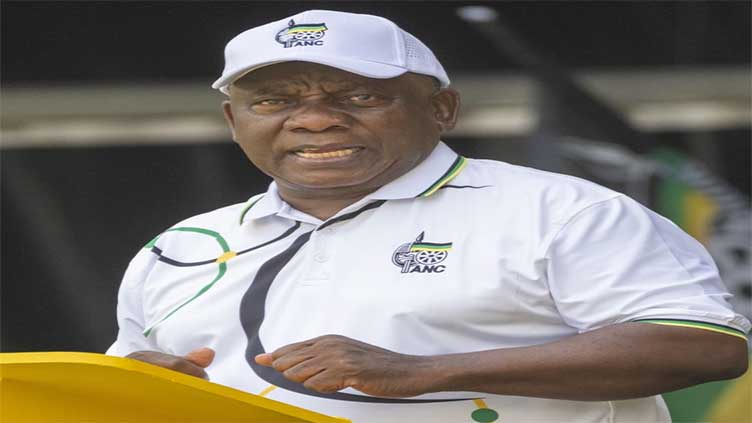South Africa's president to open Parliament after historic election created a coalition government

World
South Africa’s president to open Parliament after historic election created a coalition government
CAPE TOWN, South Africa (AP) — South African President Cyril Ramaphosa will open a new parliamentary term Thursday to mark the official start of business for his 11-party coalition government, an uneasy union brought together by an historic election result.
Ramaphosa’s speech will likely outline the priorities for the new government, which were made clear after his once-dominant African National Congress party lost its parliamentary majority for the first time in the country’s May 29 election. Voters driven by anger over extremely high levels of unemployment and inequality and the failing state of many basic public services handed the ANC its worst ever result in a national election.
In the biggest shift in South African politics since the end of the apartheid system of white minority rule in 1994, the long-ruling ANC dropped to just 40% of the vote and no party won a majority. The ANC has been forced to share power with others for the first time in South Africa’s 30 years of democracy, including with what was the main opposition Democratic Alliance.
That means Ramaphosa will also come face-to-face Thursday with a new opposition. It is headed by former South African president and ANC leader Jacob Zuma and led in Parliament by an impeached judge who Ramaphosa removed from his position in March for gross misconduct.
Former Mozambique finance minister on trial in US over ‘tuna bond’ scandal that spurred debt crisis
The newly-founded MK Party of Zuma surprisingly won the third largest share of the vote in its first election and was formally recognized by Parliament’s rules committee this week as the official opposition as the largest party not part of the governing coalition.
Zuma, a contentious figure who was forced to resign as president in 2018 amid corruption allegations, has turned against the ANC and become the fiercest critic of Ramaphosa, who was once Zuma’s deputy president.
Zuma made MK a significant political force almost overnight due to his lingering popularity in parts of the country, although he was disqualified from serving as a lawmaker for five years from 2022 due to a conviction and short prison term he served for contempt of court for refusing to testify at an inquiry into government graft.
Because Zuma can’t serve in Parliament, his party appointed former judge John Hlophe as its leader in the legislature. He was a High Court judge who was impeached by Parliament and fired by Ramaphosa for trying to influence other judges in a case dealing with a corruption investigation into Zuma.
Ramaphosa’s coalition government is made up of 11 parties, with seven of them represented in his new Cabinet. It faces a steep challenge to revive South Africa, where levels of unemployment, inequality and violent crime are among the highest in the world even as it stands as the most industrialized economy on the African continent.
Ramaphosa and other leaders in the new coalition say it represents a new era of political unity and hope for the country of 62 million people.


